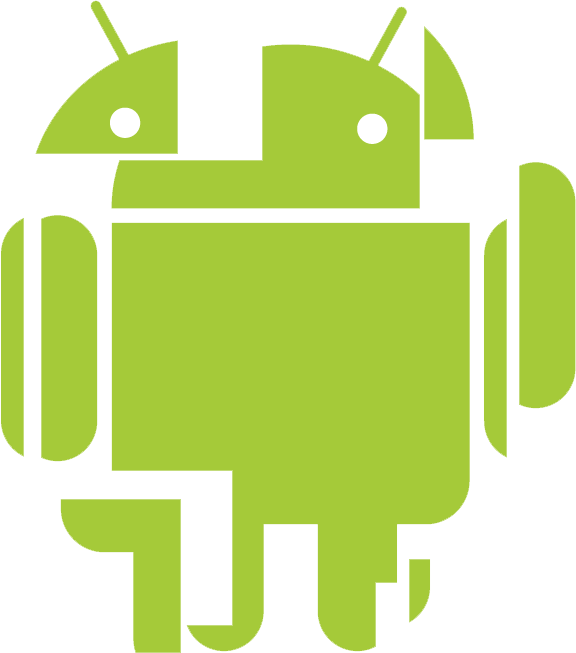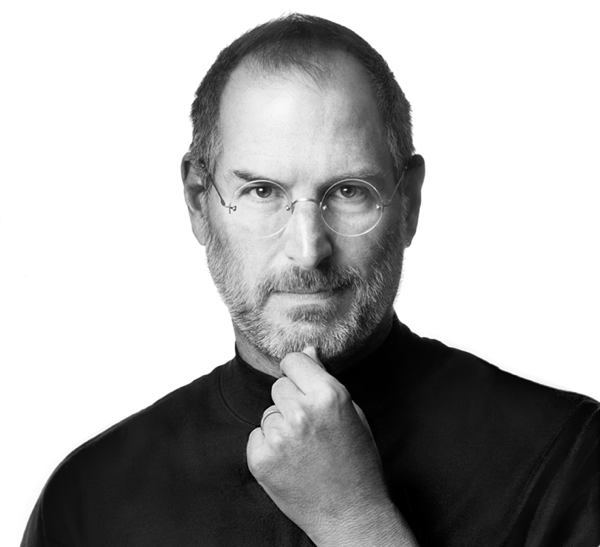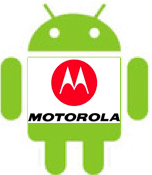Oct 27, 2011
Android Fragmentation - Visualized
This blog post (and graphic) drives home the how manufacturers are not updating Android frequently (my Top 10 peeve with the platform). A few of the stats really jump out at me:

- 10 of 18 were at least two major versions behind well within their two year contract period.
- 15 of 18 don’t run Gingerbread, which shipped in December 2010.
Check out Android Orphans blog post to get all the information.
Oct 6, 2011
Thank you, Steve
Thank you, Steve for inspiring me to create technology that “just works”
Thank you, Steve for proving to me that technology doesn’t have to be clunky, messy and awkward
Thank you, Steve for helping me appreciate beautiful design
You sure put a ding in the universe. I promise to Stay Hungry and Stay Foolish.
RIP

Aug 20, 2011
Know Thy Mobile User
Knowing your users and the context in which they are using your app is a key aspect of developing useful and user-engaged mobile apps. This is especially important in a fragmented market (and a recurring theme in the frustrations of developers). The Hunch Blog has some interesting stats on broad demographics and patterns of iOS and Android users.

Here are a few that I found especially relevant to me:
-
Stat: iOS users also travel frequently. (They are 50% more likely to have visited more than five countries and 55% more likely to have used their frequent flyer miles).
Takeaway: Optimize your app for slower data connections and Be sure to test your app in “Airplane mode”.
-
Stat: iOS users are 26% more likely to prefer spending their money and Android users are 29% more likely to prefer saving their money .
Takeaway: Charge for your iOS apps :-) even if it is just 99 cents
-
**Stat: **iOS Users are early adopters, 50% more likely to first use the Internet before ‘92 and 67% more likely to back up their computer constantly.
**Takeaway: **This is further confirmation that iCloud is going to have a lot of potential. You start with a user base that backs up constantly and then give them a very easy way for their data to be available everywhere. If you have iOS apps and weren’t already considering iCloud, you should.
Other Interesting stats:
* Android users are 10% more likely to be men and iOS users are 10% more likely to be women.
* iOS users are 50% more likely to text while driving. (Seriously!)
* Android users are 50% more likely to use Yahoo! Mail. (Maybe this bodes well for Yahoo’s upcoming Android phone)
As with any other broad based demographics, analyze it in the context of your users and be sure not to confuse correlation with causation.
Aug 15, 2011
Google Buys Motorola Mobility - This is good for users and product managers alike
Google just announced that it is acquiring Motorola Mobility (reportedly for $12.5 billion). This could be really good news for the end-to-end user experience in the Android platform. Google is also committing to keep the Android platform open. To quote the blog post :
> This acquisition will not change our commitment to run Android as an open platform. Motorola will remain a licensee of Android and Android will remain open. We will run Motorola as a separate business.
>
>

I see this as Google taking a cautious step in the right direction in the whole debate on “Open” vs “Integrated”. It’d be great if Google can find the perfect balance, but if it can’t, I’d much rather it move towards Integrated rather than staying open.The mobile (and tablet) industry is converging on a single playbook for succeeding in the post-PC era. It involves hardware and software from the same vendor, providing a rich user experience. This is the third of the marriages of hardware + software vendor, following RIM’s purchase of QNX, HP’s purchase of Palm for WebOS.
This is really good news for users and developers alike. The one recurring theme in the Top 10 things that I hate about Android was fragmentation. Assuming that Google provides a strong baseline implementation, this will force other manufacturers to follow suit otherwise, over time, only Google’s phone will be selling.
This could also mean that Xoom 2 (or 3), might be a good viable alternative to iPad 2. Right now, it doesn’t even come close, but with a converged OS for mobile and tablet (Ice-cream sandwich), and hardware from the same vendor, and with Android’s reach, we might very well be looking at 2012 as the year of the iPad competitor.
Good luck Google!
Aug 11, 2011
A Product Manager's nightmares with the Android Platform
My observations on the pain points of developing for the Android platform, and suggested workarounds for those pain points are published today in TechRepublic. To summarize a few key points :
-
Fragmentation is a nightmare and makes Android development a lot more complicated than it should be.
-
There should be broad based agreements on what manufacturers and carriers can and cannot do to the platform, and the ecosystem should work together to provide a good, solid baseline that all developers can take or granted. It is in the best interest of the platform
-
Google should act as a “good cop” in helping the platform as it matures.
-
Patent related issues (aka “The Pink Elephant in the room”) need to be addressed sooner than later.
You can read the entire blog post at TechRepublic
And finally, I’d like to leave you with an image (From Engadget) that I think captures the gist of all things wrong about the platform. Think about it!





